"This morning, ice in our bedroom for the first time all winter," Katherine Waterston's resigned Abigail states in the first voice-over in The World to Come. The camera moves from the bedroom she shares with her laconic husband, Dyer (Casey Affleck), through their sparse, frigid cabin in upstate New York. It's Tuesday, January 1, 1856, a fact Abigail states in her interior monologue/diary entry. The frozen bedroom is an apt description of their wintry abode. But it's also a metaphor for the state of their rote marriage made chillier by the loss of their child some months earlier.
Abigail begins the day washing potatoes on which the water freezes on contact, she says with the banal recitation of a woman driven by routine. She's unaware of the thaw that's about to arrive in the form of companionship, enlivening conversation, and passion with her new neighbor Tallie (Vanessa Kirby shooting off sparks), who makes her way to the homestead at the precise moment Abigail declares to her husband that she wishes to purchase an atlas to widen the boundaries of her knowledge.
From there on out, Abigail and Tallie's worlds are cracked open by all that they become to one another. Dialogue in The World to Come -- from director Mona Fastvold (The Sleepwalker) and based on a story from Jim Shepard with a screenplay by Shepard and Ron Hansen -- is spare. But as the women grapple to comprehend and communicate their burgeoning desire, they arrive at an all-encompassing language beyond words.
"It's more than a kind of first love. It's a first everything. First friendship, first real companion, intellectual companion," Waterston says of Abigail and Tallie's abiding connection.
"I don't remember talking to Vanessa about it or to Mona about it. I think we just understood something about our characters and it worked," she says. "What that was is that they recognized each other, and it's a recognition of a shared grief."
While Abigail mourns her young daughter who died of diphtheria in the fall, Tallie, a force of nature, pushes back against her abusive and petulant pig farmer husband, Finney (Christopher Abbott), who jealously attempts to tamp down her spirit. But there's also an undefinable loss for them, for women of their time, which Abigail touches on in her voice-over as she longs to feed her intellect and wonders about the untold hardships her mother and grandmother endured before her.
Katherine Waterston as Abigail
"There's the grief of living a whole life within the bounds of something that you feel completely restricted by," says Waterston, the star of the Alien: Covenant and the Fantastic Beasts franchise. "I felt that was there on the page and what had to be there when we [the characters] looked into each other's eyes the first time."
"I was so happy with how Mona filmed it because I felt like it came across," she adds. Their initial eyeing of one another from across Abigail's sprawling yard sets the tone for all of their tacit declarations to follow.
"There is a long, long sort of dance as they fall in love and they don't know if the feelings are requited, necessarily," Waterston says. "But there's a trust from the first moment they look at each other, that this person understands me. And in no way that they've ever had before."
The film opens with the camera pointed skyward at towering treetops. The first shot is out of focus and abstract, fitting for a film featuring four actors and just a few extras that's so pared down in places that it feels almost experimental. But soon the treetops where they shot the film in a remote spot in Romania come into clear and unmistakable focus, much like Abigail and Tallie's worlds when they meet.
To play the role of a 19th-century farmer's wife cut off from much of society, Waterston, who learned among other things to milk a cow from a local farmer where they shot the film, was buoyed by the economy of language in the script with the voice-over telegraphing so much of Abigail's interior life.
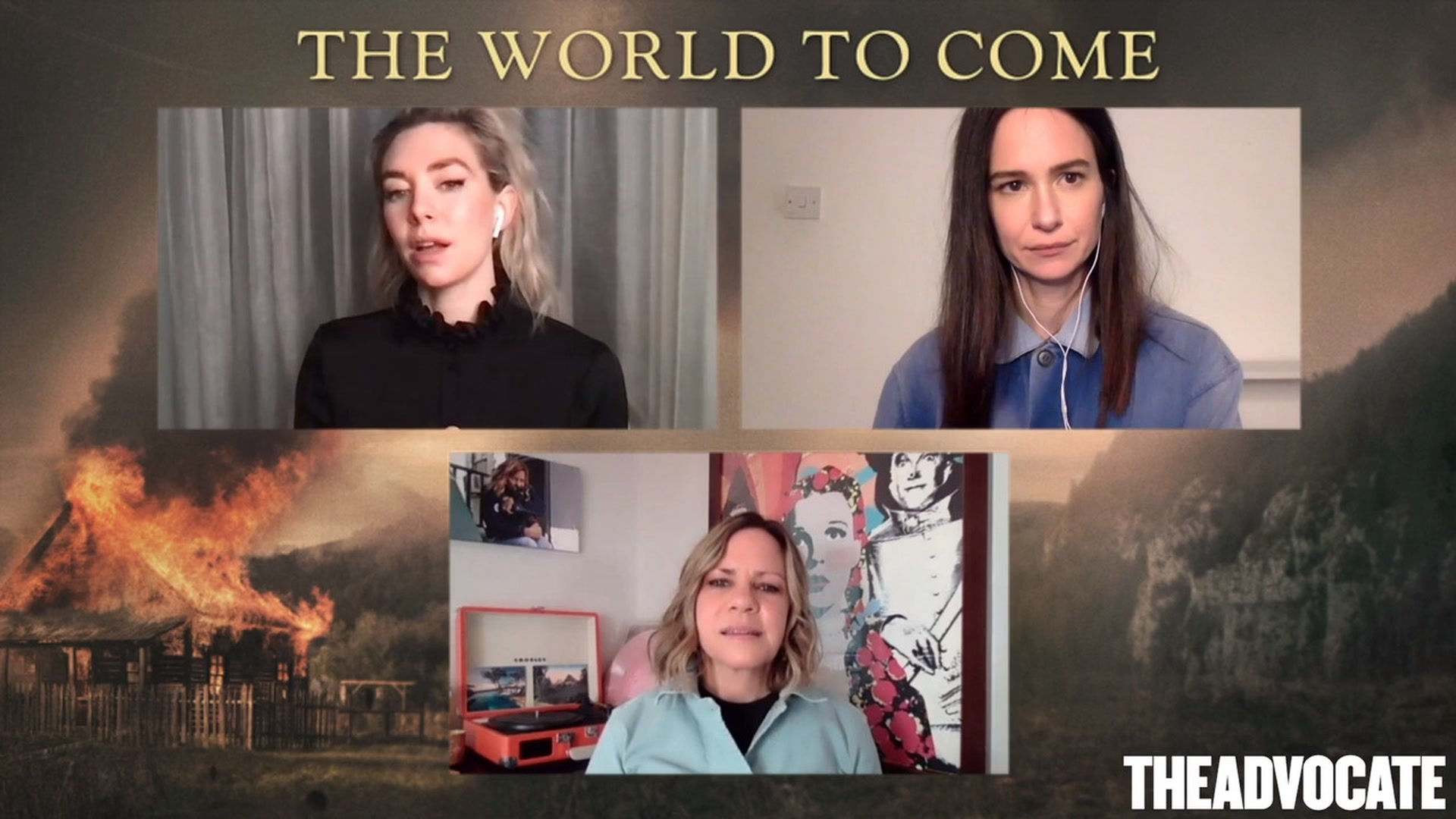
Vanessa Kirby and Waterston in a video interview with The Advocate
"There was a line of voice-over that didn't make it into the film that really caught my attention," she says. "And it was at night I often wondered if those who have been my intimates so found me to be a steep hill whose view does not repay the ascendance," she recites.
"I was blown away. Right away with this one line, they're telling me this is the kind of person who, very humble, is kept up at night worried about what she hasn't given versus what she hasn't gotten from life," Waterston marvels.
Sequestered away in Romania a solid two miles from the nearest neighbor where their cell phones barely got service for the duration of the shoot, the World to Come cast and creatives were afforded the luxury of immersion.
"We rehearsed on Sundays in the mornings and at night," she says.
Beyond rehearsal time, Waterston did her homework about queer couples of the time. She notes that there's little written experience from farm women or those of few means of the era, who likely were not taught to read and write. But then there was the extra challenge of finding a history told by queer women.
"On top of it, we don't have many accounts of lesbian love stories of lesbian experiences in this period," she says. "I did so much research, I was looking for women like these women to study. But what you mostly find is that, obviously, history is written by the literate. So you find it's the educated women of privilege."
In her research, Waterston found the Anne Lister diaries "utterly fascinating," she says of the lesbian pioneer who was born to great financial privilege (whose story is now being told in the HBO series Gentleman Jack).
Kirby and Waterston
But it was a series of letters by writer Sylvia Townsend Warner and poet Valentine Ackland, also privileged, she acknowledges, in the collection I'll Stand by You that stuck with her throughout filming.
"They vocalized their marriage to one another. It's so moving, so beautiful. 'I marry you,' you know," she says.
"I haven't thought about this since we started shooting. But I'm just remembering that when I was in the film, all the time, I was thinking, I want to say I marry you to her," she recalls. "I don't know if I'm the only gay woman in the world. That's how remote my life is."
The monotony of hauling water, milking cows, endless baking, and fieldwork with her husband is disrupted by Tallie's visits. Or perhaps even more pointedly, in Tallie's absence when Abigail's mind is set ablaze with thoughts of her that run the gamut from passion to concern as the state of her beloved's volatile marriage becomes clear. On-screen, the women's time together evolves from sharing stories of coping in marriages practically preordained to quoting Shakespeare to finding solace and satisfaction in each other's arms and beds. At one point, Tallie gifts Abigail with an atlas on her birthday -- a nonverbal sign that they will cover much ground together.
"What do you do and what do you say when there is this sort of absence of the tools or the language to communicate?" Waterston says.
There's a moment in Abigail's kitchen before their first kiss when the women search for words to articulate the energy between them, only to find that nothing in their world suffices.
"It resonates on two levels, right? Because it's feelings they've never had for another woman before? Or maybe they have. We don't know, but [they] never knew how to describe it," Waterston says.
"And then, also, it's just standard-issue falling in love. How do you describe that? How do you put that into words?"
The World to Come is available on VOD now.
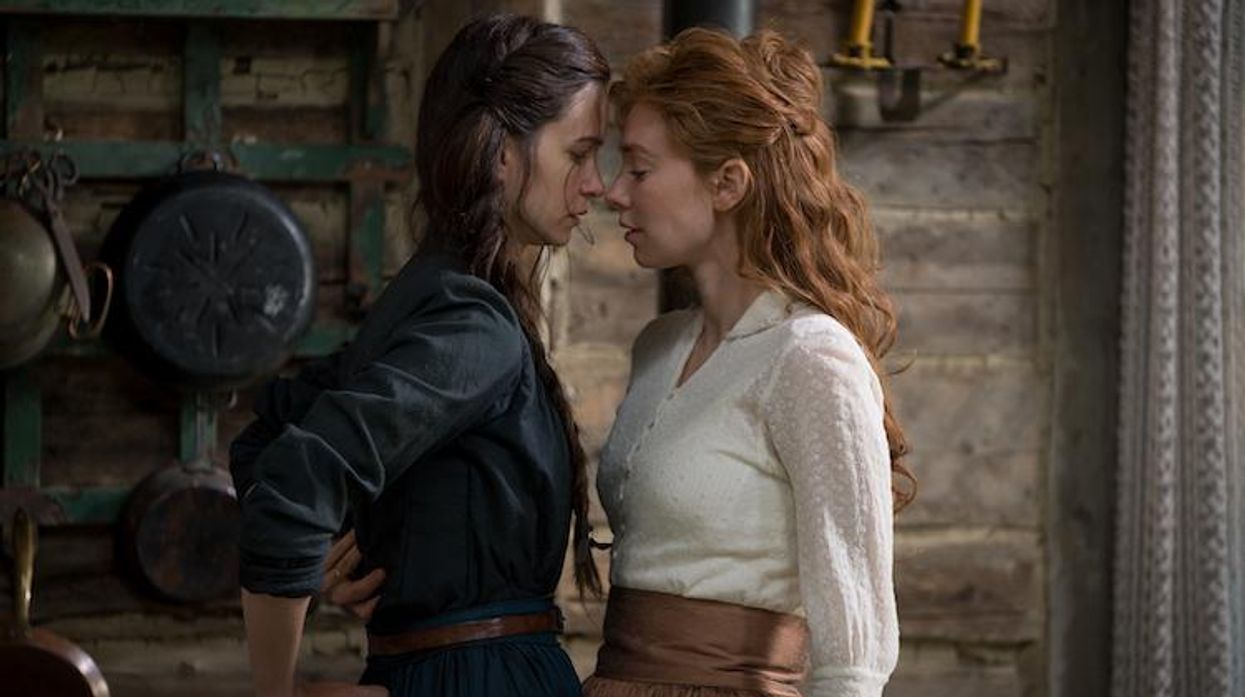

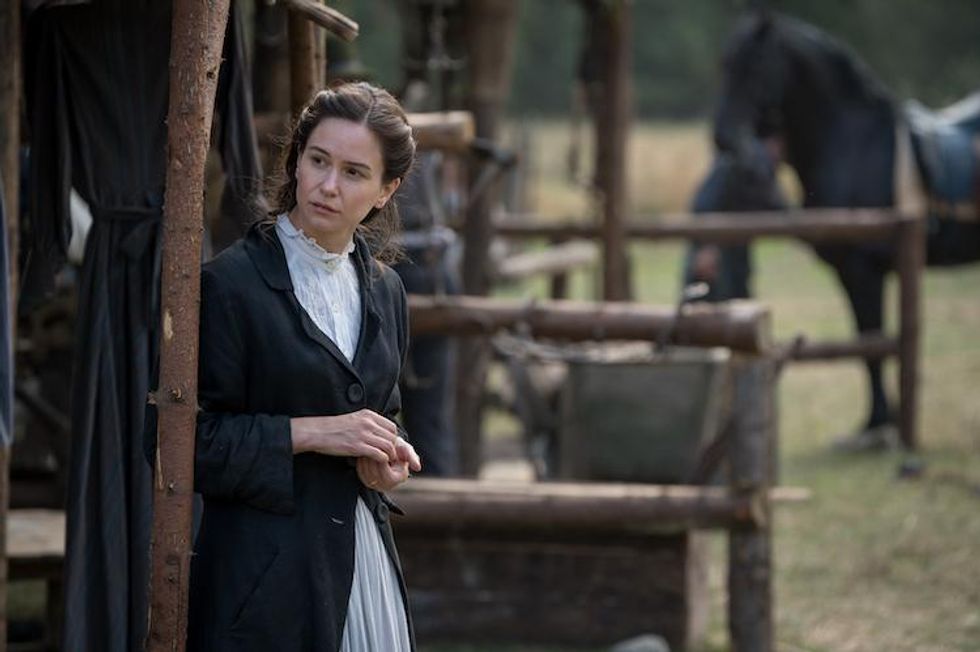
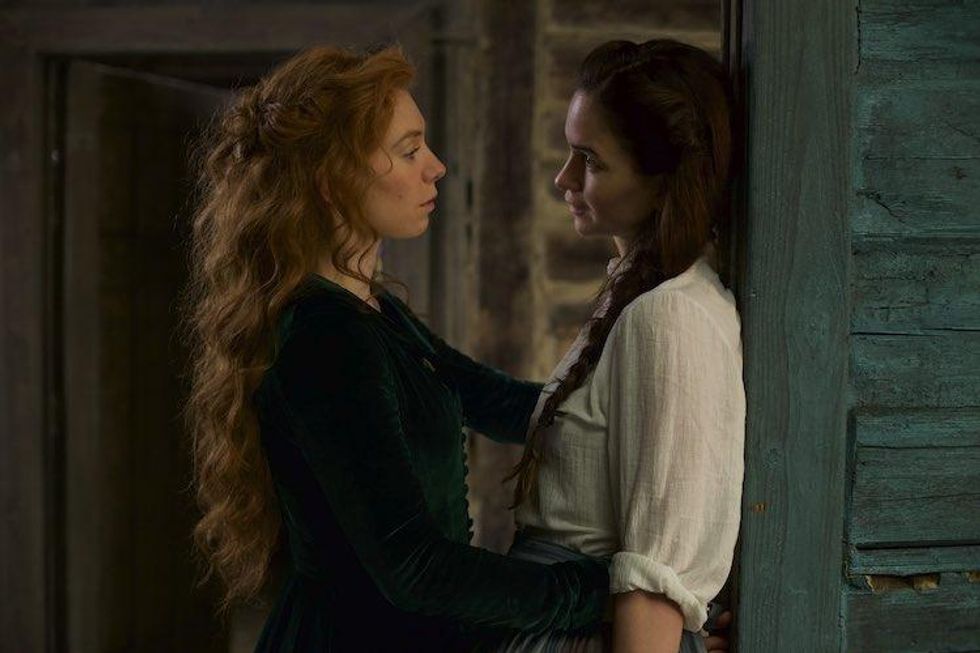





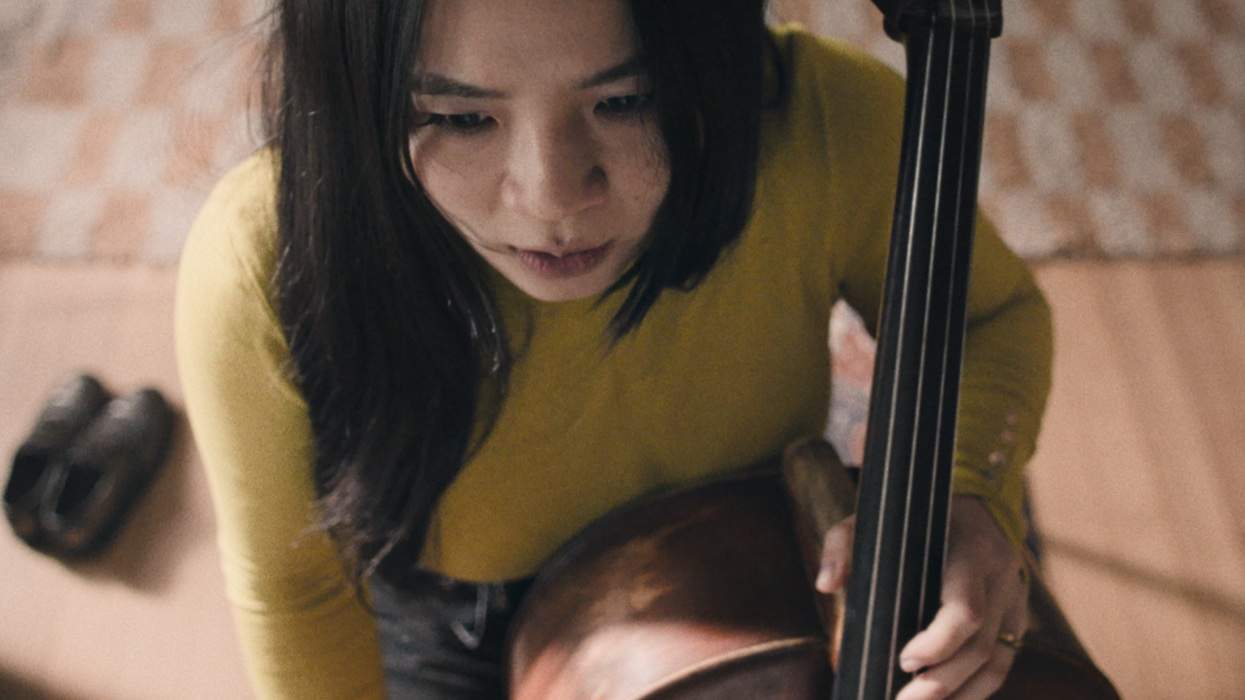

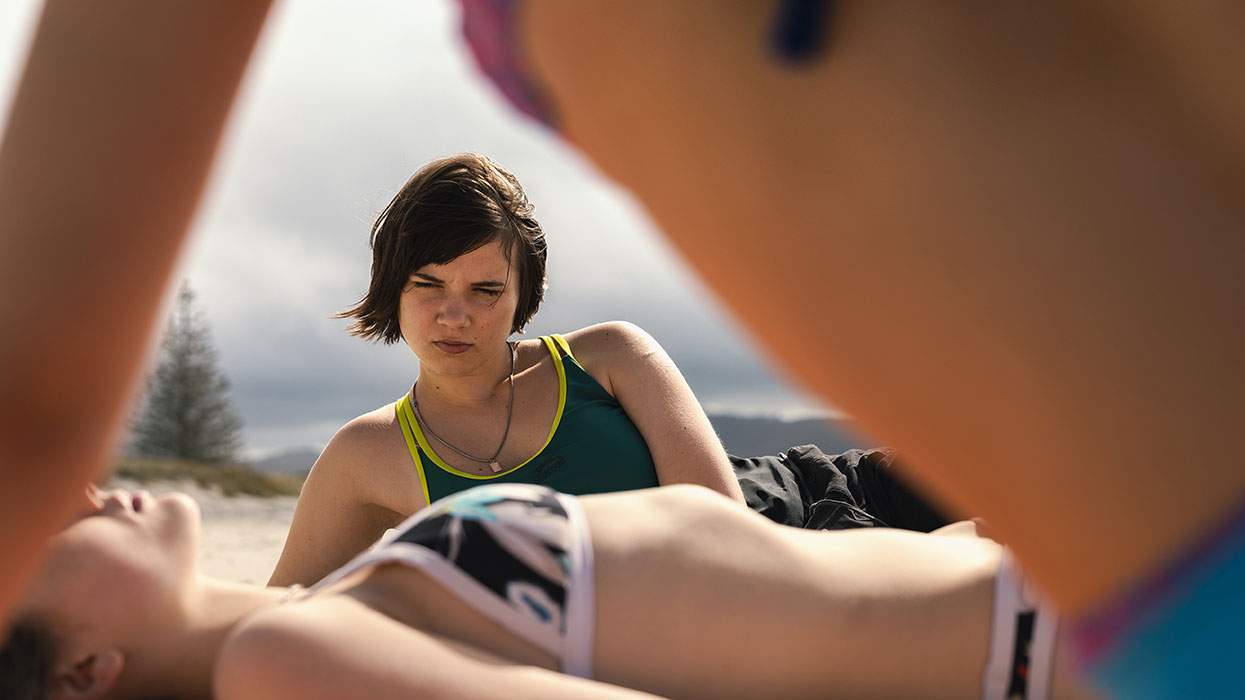
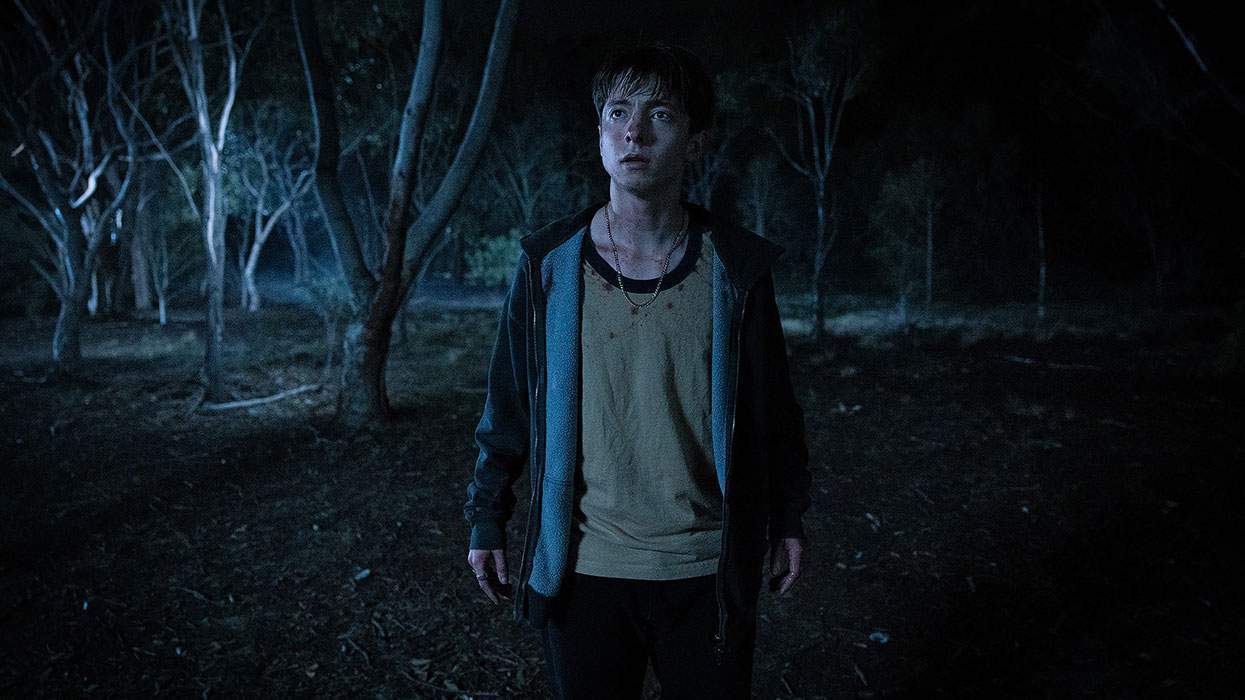





Charlie Kirk DID say stoning gay people was the 'perfect law' — and these other heinous quotes
These are some of his worst comments about LGBTQ+ people made by Charlie Kirk.